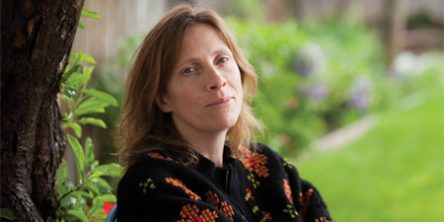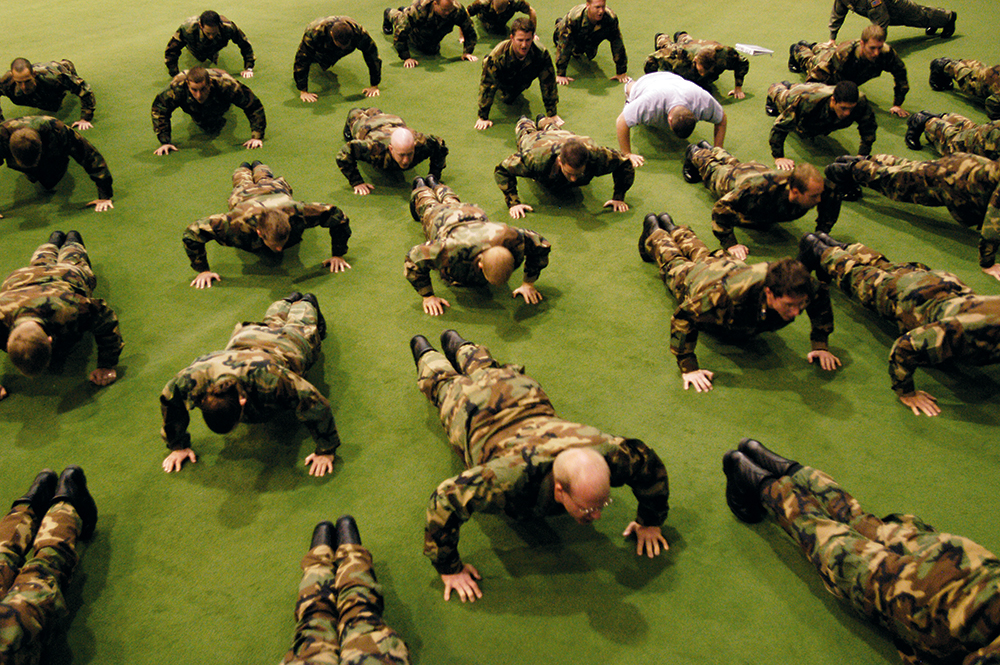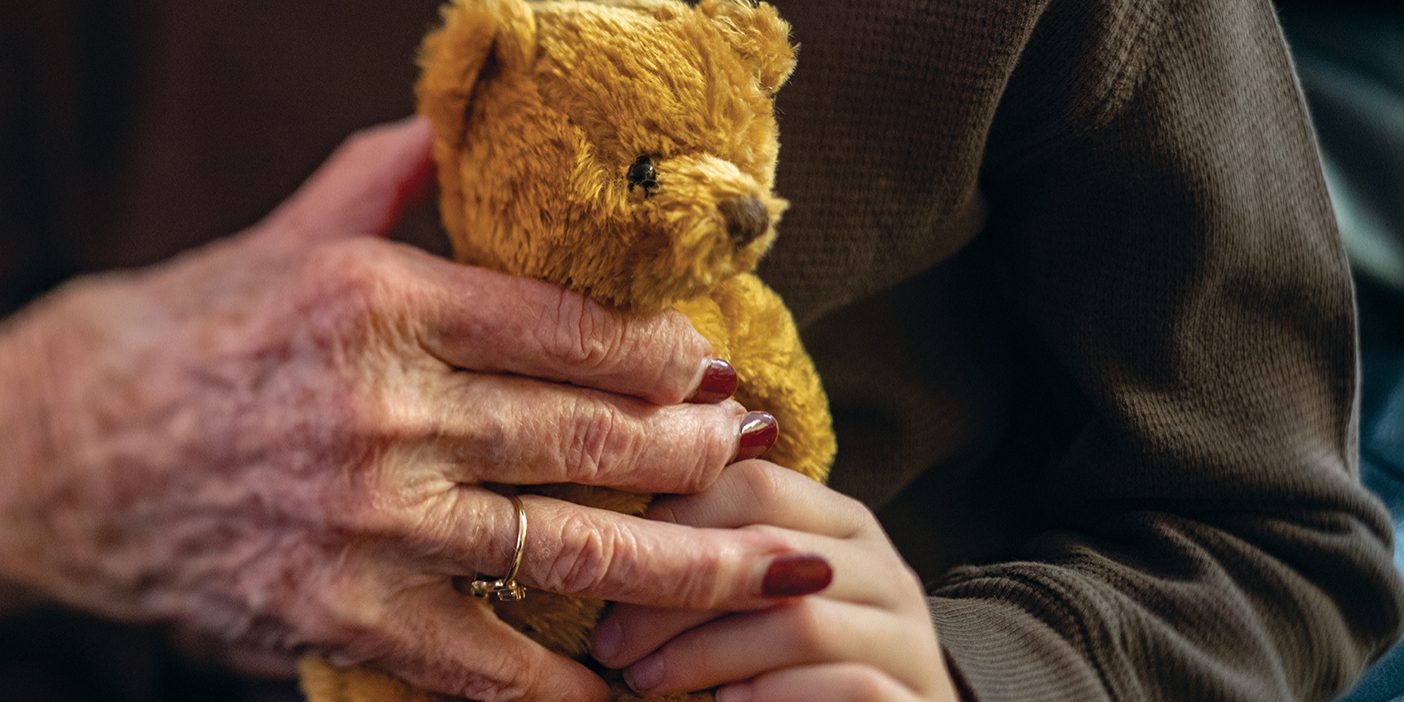By Carri P. Jenkins, ’83
IN the second annual National Survey of Student Engagement (NSSE), BYU ranked in the 99th percentile in the category of “supportive campus environment” and in the 90th percentile in “level of academic challenge”—exceeding the benchmarks set by 470 institutions across the nation.
Since its inception, the NSSE survey has been praised for looking at what contributes most to student learning, including whether or not an institution’s programs and practices are having the desired effect on students’ learning and development.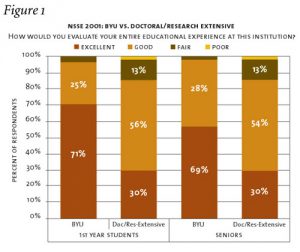 Released in mid-November, the NSSE 2001 report, Improving the College Experience: National Benchmarks of Effective Educational Practice, measures student engagement in activities that research shows are positively related to learning and personal development.
Released in mid-November, the NSSE 2001 report, Improving the College Experience: National Benchmarks of Effective Educational Practice, measures student engagement in activities that research shows are positively related to learning and personal development.
Cosponsored by the Pew Forum on Undergraduate Learning and the Carnegie Foundation for the Advancement of Teaching, the survey has collected responses from 155,000 undergraduates at 470 four-year institutions over two years.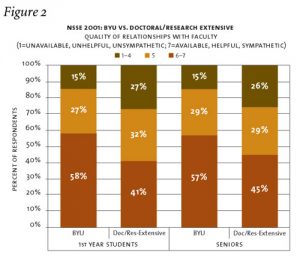 The report identified five national benchmarks of effective educational practice: level of academic challenge, active and collaborative learning, student interactions with faculty members, enriching educational experiences, and supportive campus environment. In the doctoral-research category, BYU ranked above the set benchmarks in all areas. (See figure 1.)
The report identified five national benchmarks of effective educational practice: level of academic challenge, active and collaborative learning, student interactions with faculty members, enriching educational experiences, and supportive campus environment. In the doctoral-research category, BYU ranked above the set benchmarks in all areas. (See figure 1.)
While BYU is pleased with these rankings, Danny R. Olsen, ’76, director of BYU‘s Office of Institutional Assessment and Analysis, says the university participates in the survey not to gain recognition but to better evaluate its own programs. “We want to know what we are doing well and where we can improve,” says Olsen.
For instance, BYU saw significant improvement this year in two areas where it fell below national norms last year—student interactions with faculty and enriching educational experiences. In recent years, BYU has placed much attention on faculty-student cooperation that takes place at the undergraduate level. (See figure 2.)
Informal and formal programs provide “mentored student environments” in which undergraduate students have the equivalent of a graduate-level research experience at least once during their four years. BYU has also created mentoring environment grants to encourage faculty members to develop programs where students can participate in scholarly work.







